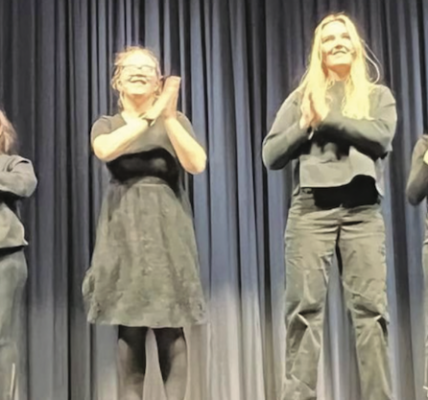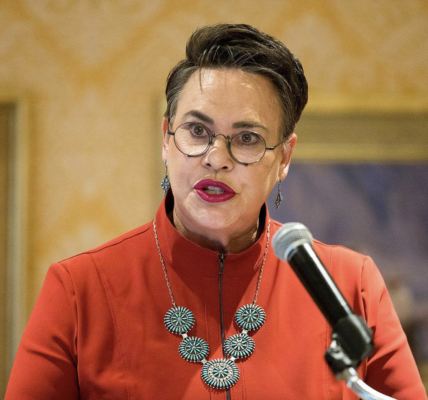By Daniel Bendtsen
Laramie Boomerang
Via Wyoming News Exchange
LARAMIE — The University of Wyoming Board of Trustees named three candidates for the position of acting president Friday.
Two are no longer university employees and the third has been a university employee for less than a year.
Chris Boswell, UW’s former vice president for governmental and community affairs, and Bill Mai, former vice president for finance and administration, have both been tapped as potential candidates.
Neil Theobald, who replaced Mai last July, is the third candidate.
UW is seeking public comment on the candidates via the trustees’ webpage.
A Friday announcement from the trustees said they expected the acting president’s term to last about one year, “or until a long-term president is on board.”
Dave True, chairman of the Board of Trustees, said during a Friday conference call of the board that the finalists were selected by a six-member ad hoc committee.
The committee has “been working on talking to potential candidates and putting together a finalist list of three.” True said the committee members haven’t met face-to-face but they’ve “spent a fair amount of time on the phone.”
Staff Senate President Renee Ballard and incoming Faculty Senate Chairman Ken Chestek will both be invited to interview the candidates during executive sessions of the board Wednesday, Trustee Macey Moore said.
Afterward, both Ballard and Chestek would be invited to participate in the executive sessions Wednesday and Friday to deliberate on the selection.
Moore said the trustees would later vote on their selection for acting president at a later conference call meeting and a press conference would be had in the wake of the decision.
Trustee Michelle Sullivan said she’s glad Ballard and Chestek would be allowed to participate in the interviews.
“I think it’s reflective of their knowledge and assistance in helping us find a strong acting candidate,” Sullivan said.
“That is a very appreciated gesture,” outgoing Faculty Senate chairman Donal O’Toole said.
“Hopefully, it’s more than just a gesture. … It is solicitous of that input,” True said.
The discussions happened during a 6 a.m. meeting of the board.
UW spokesman Chad Baldwin said the unusually early start time was in no way an attempt to deter public attendance.
There was a pressing need to host the meeting Friday, and Baldwin said scheduling conflicts meant the board would have been unable to ensure all trustees could participate in the meeting if it was hosted later in the day.
“I had a pleasant visit with President Nichols yesterday afternoon to let her know what the agendas of today’s meeting were, and she was appreciative of that,” True said at the beginning of the conference call.
Nichols was the only ex-officio member of the board not invited into Friday’s executive session. Other ex-officio members, including Gov. Mark Gordon, participated in the meeting.
This week, WyoFile and the Laramie Boomerang published a story that scrutinized the board’s use of executive sessions, as well as the vagueness of legal justifications offered to defend those closed-door meetings.
Until Friday’s meeting, the trustees have often simply cited “personnel” for certain executive sessions.
The announcement of Friday’s executive session offered more specificity: It said the executive session would be used “to consider the appointment of a public employee,” which is one of the limited personnel considerations Wyoming statute allows for the use of executive sessions.
When Trustee Kermit Brown made a motion Friday to move into executive session, he offered the same specificity.
Merely using “personnel” as an auspice for executive sessions is a common practice among public boards in Wyoming, but it’s also a practice Bruce Moats, a lawyer specializing in Wyoming’s transparency laws, said violates the spirit of the Wyoming Public Meetings Act.
The law lists a number of specific reasons boards can use an executive session, and those reasons are grouped into 11 paragraphs.
The Board of Trustees, like many boards in Wyoming, will often allude only to one of the 11 paragraphs, not to a more specific reason contained therein, when moving into executive session.
After the increased scrutiny of the board’s transparency, UW’s announcement, which explicitly said the Friday meeting would “consider the appointment of a public employee,” is in line with how Moats feels all boards ought to operate.
The law states any motion to use an executive session must cite “any of the reasons set forth in (the 11) paragraphs” that offer justification for closing doors to the public.
“If they say ‘personnel,’ that, to me, is not a reason,” Moats told the Laramie Boomerang and WyoFile last month. “A reason would be, ‘We’re going to hear about the right to employment or a dismissal of an officer or hearing a complaint.’ Some of (the paragraphs) contain more than one reason. So, I think you’ve got to not only cite the section, but the specific reason. … If you’re going to interpret this act liberally in favor of openness, then you ought to interpret it that way.”





